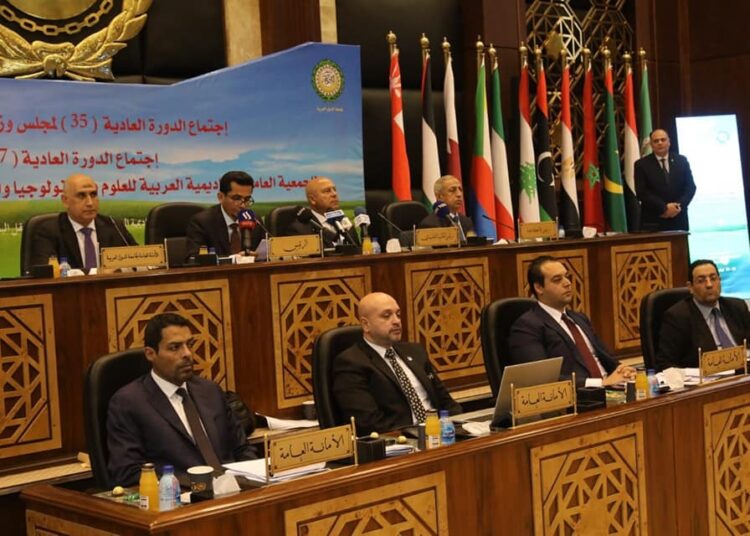Minister of Transport Kamel el-Wazir, who is the head of the Executive Office of the Council of Arab Ministers of Transport, said the world is currently facing unprecedented challenges due to various international events that caused supply chain disruptions, high shipping costs, a weak global health system, and an increase in the cost of food and energy.
These challenges make it incumbent upon all countries to unite to mitigate the repercussions of these events, Wazir said.
These remarks were made on Tuesday during Minister Wazir’s participation in the 35th meeting of the Council of Arab Ministers of Transport. The meeting was held at the headquarters of the Arab Academy for Science, Technology, and Maritime Transport in Alexandria.
“However, success remains dependent on our ability to adapt to new situations, as well as working to overcome the effects of the present crises through strengthening co-operation and coordination with each other,” Minister Wazir told the meeting.
He noted that transport is one of the most important factors of development in the world, as it plays an important role in the economic and social growth of countries and societies.
He added that all economic sectors in the world need robust transport infrastructures for the movement of goods and increased trade exchange between nations.
Wazir said his ministry exerts tireless efforts to strengthen transport links among Arab countries via air, road, and sea.
The minister spoke about Arab co-operation in the land transport sector and topics related to fees, taxes, and customs, vehicle registration number plates, and truckloads that move from one Arab country to another. He said that the Egyptian Ministry of Transport has established a unified platform for maritime transport.
All Arab leaders are attaching great importance to the transport and communication sector, which is a key factor for achieving progress and prosperity. This requires a continuous development and expansion in transport plans through all-inclusive policies and strategies, Minister Wazir said.
Egypt is implementing a comprehensive plan for raising the efficiency of the port of Wadi Halfa to activate trade and economic co-operation with the Sudanese people and leadership.
The first phase of Sokhna/Matruh high-speed train project, being implemented near the Egyptian-Libyan border, will link the Red Sea and the Mediterranean Sea for the first time.
The project will be the nucleus of a larger strategic project to link the railways between the Arab countries in North Africa, Wazir said.
As for the second phase of the project, it links the north and south of Egypt, which in turn will contribute to strengthening relations between Cairo and Khartoum.
The minister pointed out that there is close co-operation between Egypt, Jordan and Iraq to execute a number of important transport projects.
He added that Egypt was looking forward to strengthening co-operation with brotherly Arab Maghreb countries through the revival of interconnection projects between North African countries, within the framework of a strategic vision to enhance regional co-operation, facilitate trade movement and attract investments.
Wazir said that Egypt has made great strides in its efforts to implement green projects in an attempt to reduce environmental risks, protect the planet and achieve sustainable development.
Egypt plans to increase the percentage of green projects in its general budget from 15 per cent to about 50 per cent to reduce harmful emissions and shift to the use of clean energy.






Discussion about this post